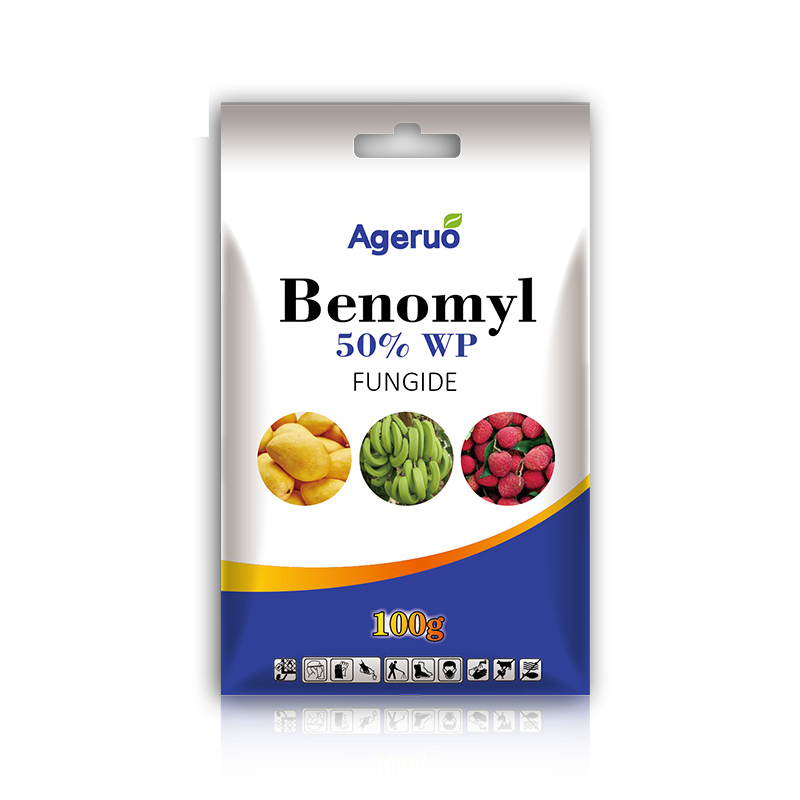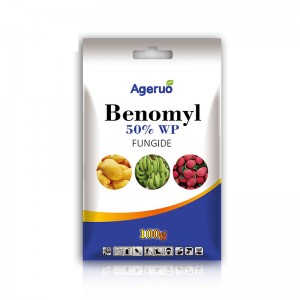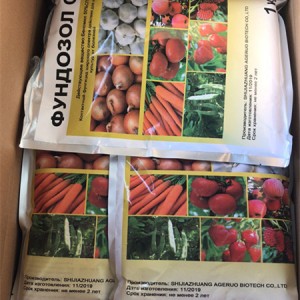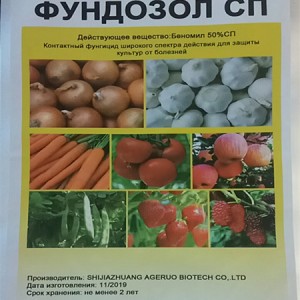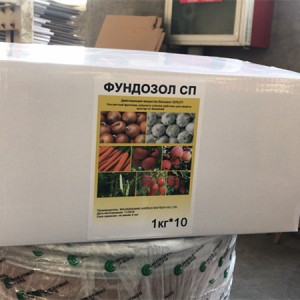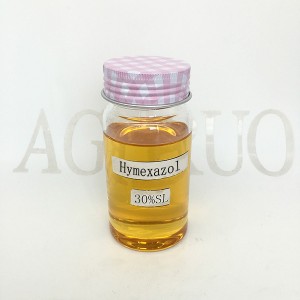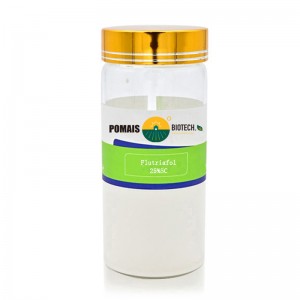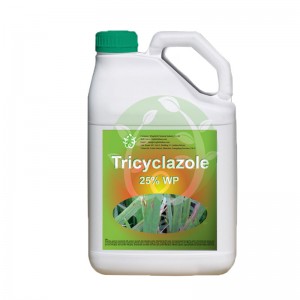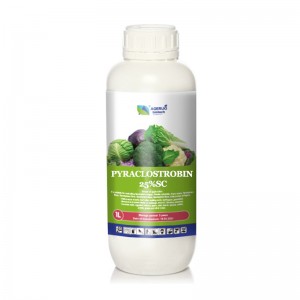Products
Benomyl 50% WP | Broad-Spectrum Systemic Fungicide for Crop Protection
Benomyl 50% WP
Broad-Spectrum Systemic Fungicide for Reliable Crop Protection
Benomyl 50% WP is a trusted broad-spectrum systemic fungicide that delivers long-lasting protection against a wide range of crop diseases. Designed for professional agricultural use, it combines preventive, curative, and eradicative action to ensure healthier yields and stronger plants. This carbamate-based wettable powder formulation is rapidly absorbed into plant tissues, transforming into Carbendazim for extended residual control. Whether you are protecting fruit trees, vegetables, or ornamental crops, Benomyl 50% WP provides consistent disease management with flexible application methods such as foliar spray, seed treatment, or soil drenching.
| Active ingredients | Benomyl 50% wp |
| CAS Number | 17804-35-2 |
| Molecular Formula | C14H18N4O3 |
| Classification | Fungicide |
| Brand Name | POMAIS |
| Shelf life | 2 Years |
| Purity | 50% |
| State | Powder |
| Label | Customized |
| Formulations | 50% wp |
| The mixed formulation product | Azoxystrobin 100g/l + Benomyl 300g/l SC |
What Is Benomyl 50% WP and How It Works
Benomyl 50% WP is a carbamate-based broad-spectrum systemic fungicide that controls a wide range of fungal diseases in crops through both preventive and curative action. Once applied, it is quickly absorbed into plant tissues and metabolized into Carbendazim, which enhances its systemic and residual activity. This dual-action mechanism allows Benomyl to work from within the plant, halting fungal development before it spreads, while also providing protective coverage on the surface.
At the cellular level, Benomyl disrupts fungal DNA synthesis by inhibiting nucleoside production. The resulting Carbendazim further interferes with the formation of mitotic spindles during cell division, preventing the fungus from multiplying. This combination of systemic and contact activity makes it highly effective against persistent diseases, even under challenging weather conditions. Its versatility allows for foliar spraying, seed dressing, and soil treatment, making it a valuable tool in integrated disease management (IDM) programs for vegetables, fruit trees, and ornamental crops.
Key Features and Benefits
Benomyl 50% WP delivers reliable disease control through its systemic and contact activity, ensuring both immediate protection and long-term crop health. Its dual-action approach effectively prevents fungal establishment while also curing existing infections, making it a flexible choice for various agricultural needs.
Key Features:
-
Systemic & Contact Protection – Absorbs into plant tissues for internal defense while providing a protective layer on the surface against external fungal spores.
-
Triple Action Performance – Preventive, curative, and eradicative functions ensure comprehensive disease control.
-
Versatile Applications – Suitable for foliar spraying, seed dressing, and soil treatment, offering multiple use scenarios in crop protection programs.
-
Low Residue & Safe for Crops – Minimal residue concerns when used as directed, reducing the risk of crop injury.
-
Broad Crop Compatibility – Effective on vegetables, fruit trees, and ornamental plants, making it ideal for diversified farming operations.
Key Benefits for Distributors and Growers:
-
Higher Market Demand – Broad-spectrum control makes it a consistent seller in multiple agricultural markets.
-
Increased Yield & Quality – Reduces disease-related losses, helping farmers improve crop quality and market value.
-
Improved Resistance Management – Fits well into IDM programs when rotated with fungicides from other chemical groups.
-
Enhanced ROI for Farmers – Fewer repeat applications due to its residual effect means reduced labor and input costs.
Target Crops and Disease Spectrum
Benomyl 50% WP is widely compatible with various crops and effectively controls a broad spectrum of fungal diseases. Its systemic action and residual effect make it a preferred choice for farmers managing persistent and seasonal infections across diverse agricultural sectors.
Suitable Crops:
-
Fruit Trees – Citrus, banana, pear, apple, peach, and mango orchards
-
Vegetables – Tomato, cucumber, asparagus, beans, and leafy greens
-
Ornamental Plants – Roses, chrysanthemums, and other floriculture species
-
Industrial Crops – Tea, coffee, cotton, and tobacco

Major Fungal Diseases Controlled:
-
Venturia spp. (Scab in pears and apples)
-
Colletotrichum spp. (Anthracnose in tropical fruit)
-
Mycosphaerella spp. (Leaf spot in bananas)
-
Phomopsis spp. (Stem blight in asparagus)
-
Elsinoë spp. (Citrus scab)
-
Powdery mildew, gray mold, rust, and other foliar blights across various crops

Regional Adaptability:
Benomyl 50% WP is effective in tropical, subtropical, and temperate climates, making it a valuable tool for distributors serving Asia, Africa, Latin America, and the Middle East. Its wide crop compatibility ensures consistent demand from both large-scale plantations and smallholder farms.
For agricultural importers and distributors, stocking Benomyl 50% WP means offering a multi-crop, multi-disease fungicide that minimizes inventory complexity while maximizing market coverage.
Application & Dosage
Benomyl 50% WP should be applied at the correct dosage and timing to ensure optimal disease control and crop safety.
Proper application maximizes the fungicide’s systemic and protective action while minimizing the risk of phytotoxicity or resistance development. Farmers and distributors should ensure that the product is used in line with crop-specific recommendations and local agricultural regulations.
General Application Guidelines:
-
Formulation Preparation – Mix the required amount of Benomyl 50% WP with a small volume of water to create a slurry, then add to the spray tank and top up with water while agitating continuously.
-
Application Method – Apply as a foliar spray using ground sprayers, mist blowers, or aerial application equipment, depending on the crop type and field conditions.
-
Spray Coverage – Ensure thorough coverage of leaves, stems, and fruit for maximum effectiveness, especially on the underside of leaves where fungal spores may accumulate.
Recommended Dosage (General Range):
-
Field Crops (e.g., wheat, soybeans, peanuts) – 300–500 g of product per hectare.
-
Fruit Crops (e.g., grapes, apples, citrus) – 500–750 g of product per hectare.
-
Vegetables (e.g., tomatoes, cucumbers, beans) – 400–600 g of product per hectare.
-
Ornamentals – 300–500 g of product per hectare.
Application Timing:
-
Preventive Use – Apply before disease symptoms appear, especially during periods of high humidity or conducive weather.
-
Curative Use – Apply at the first signs of infection and repeat at intervals of 7–14 days, depending on disease pressure and crop growth stage.
Mixing Compatibility:
-
Compatible with many other fungicides and insecticides but avoid mixing with strongly alkaline products to prevent reduced efficacy.
By following these dosage and application guidelines, Benomyl 50% WP can deliver maximum disease suppression, maintain crop health, and safeguard yield quality.
Resistance & Integrated Disease
Benomyl 50% WP plays a critical role in resistance management and is a valuable tool in integrated disease management (IDM) programs.
Its systemic benzimidazole mode of action offers strong disease control, but to ensure long-term effectiveness, it should be strategically rotated with fungicides from other chemical groups.
Resistance Management Guidelines:
-
Avoid Overuse – Repeated use of benomyl alone can encourage resistant fungal strains. Limit applications to the recommended number per crop season.
-
Alternate Modes of Action – Rotate with fungicides from other FRAC groups, such as strobilurins, triazoles, or multi-site contact fungicides, to break resistance cycles.
-
Tank Mixing – Where permitted, tank mix with compatible fungicides to broaden disease control spectrum and reduce resistance risk.
-
Monitor Field Performance – Regularly scout crops for signs of reduced effectiveness and adjust programs accordingly.
Role in IDM:
-
Preventive First Line – Works best when applied early in the disease cycle, forming part of a multi-fungicide approach.
-
Combines Cultural & Chemical Control – Use alongside crop rotation, resistant varieties, and proper field hygiene for maximum effectiveness.
-
Supports Sustainable Agriculture – By managing resistance, growers can extend the lifespan of benomyl and maintain high crop productivity without escalating costs.
By integrating Benomyl 50% WP into a structured rotation and IDM program, growers can safeguard their crops against fungal resistance while preserving the product’s performance for future seasons.
Formulation, Packaging & OEM Services
Benomyl 50% WP is available in fully customizable packaging solutions designed to meet diverse market requirements and brand positioning needs.
From small retail packs for agro-dealers to large bulk drums for commercial farming operations, the product can be tailored in both capacity and design to align with client specifications.
Packaging Options:
-
Small Packs (100g, 250g, 500g, 1kg) – Ideal for retail sales through agricultural supply stores.
-
Bulk Packaging (5kg, 10kg, 25kg) – Suited for large-scale farms, cooperatives, and government supply programs.
-
Material Choices – High-barrier laminated bags, moisture-proof foil pouches, or fiber drums with inner liners to preserve product quality.
-
Labelling Flexibility – Multilingual labels, crop-specific usage instructions, and customized branding elements.
OEM/ODM Capabilities:
-
Private Label Production – We manufacture under your brand name while maintaining strict quality standards.
-
Customized Formulation Presentation – Support for country-specific packaging regulations and design preferences.
-
Branding Support – Graphic design assistance to create impactful logos and packaging layouts that resonate in your target market.
-
Market-Specific Adaptations – Tailored pack sizes, measurement units, and regulatory icons to meet local requirements.
With our OEM/ODM service, you not only receive Benomyl 50% WP in optimal condition but also gain a market-ready product that strengthens your brand’s presence and competitiveness.
Safety & Environmental Profile
Benomyl 50% WP is formulated to deliver high efficacy against target pathogens while maintaining a strong safety profile for users, crops, and the environment when applied according to label instructions.
This fungicide belongs to the benzimidazole class, which is generally regarded as low in toxicity to humans and non-target organisms under proper usage conditions.
User Safety:
-
Benomyl 50% WP has low acute toxicity (oral, dermal, and inhalation) and is non-irritating to skin and eyes when handled correctly.
-
Standard personal protective equipment (PPE) such as gloves, masks, and protective clothing should be worn during mixing and application.
-
Avoid inhalation of dust during preparation; wash hands and exposed skin thoroughly after handling.
Crop Safety:
-
Selectively targets pathogenic fungi without causing phytotoxicity to labeled crops.
-
Compatible with most common agricultural practices and rotation systems.
-
Should not be used on certain sensitive varieties unless tested locally to avoid potential leaf spotting.
Environmental Considerations:
-
Benomyl is practically non-toxic to birds and moderately toxic to aquatic invertebrates, so avoid contamination of water bodies during spraying and equipment cleaning.
-
The active ingredient binds strongly to soil particles, reducing the risk of leaching into groundwater.
-
Residue degradation occurs primarily through microbial activity, with a moderate half-life in soil.
Regulatory Compliance:
-
Recognized and registered in multiple agricultural markets worldwide.
-
Meets standard Maximum Residue Limits (MRLs) when applied according to Good Agricultural Practices (GAP).
By following recommended safety measures and responsible usage practices, Benomyl 50% WP can be applied effectively while minimizing risks to operators, consumers, and the environment.
Storage & Handling
Proper storage and transportation of Benomyl 50% WP are essential to maintain product quality, extend shelf life, and ensure safe handling throughout the supply chain.
Following these guidelines reduces the risk of degradation, contamination, and accidental exposure.
Storage Recommendations:
-
Store in a cool, dry, and well-ventilated area, away from direct sunlight and high humidity.
-
Maintain storage temperatures between 0°C and 35°C to prevent caking or loss of efficacy.
-
Keep the product in its original, tightly sealed packaging to avoid moisture absorption.
-
Avoid storing near strong oxidizing agents, acids, or food and animal feed products.
-
Clearly label storage areas to restrict unauthorized access and ensure operator safety.
Transportation Guidelines:
-
Comply with local and international transport regulations for agrochemical products.
-
Transport in covered vehicles or containers to protect against extreme weather conditions.
-
Secure product packaging to prevent damage or spillage during transit.
-
Use palletized loads for bulk shipments to facilitate safe handling and minimize breakage.
-
For international shipping, ensure all documents such as MSDS, Certificate of Analysis, and shipping declarations are properly prepared.
Shelf Life:
-
Under recommended storage conditions, Benomyl 50% WP typically maintains full efficacy for 2 years from the date of manufacture.
-
Regularly inspect stored products for signs of caking, discoloration, or odor changes, which may indicate compromised quality.
By adhering to these storage and transport practices, distributors and agricultural suppliers can ensure the safe delivery of Benomyl 50% WP from factory to farm while preserving its performance and compliance.
Why Choose POMAIS
Partnering with POMAIS means securing a consistent, high-quality Benomyl 50% WP supply with full customization and dependable global support.
We combine technical expertise with deep market insight to help importers, distributors, and agrochemical brands deliver effective plant protection solutions to their customers.
Key Partnership Advantages:
-
Consistent Product Quality – Manufactured on advanced production lines under strict quality control systems, ensuring stable formulation, uniform granules, and excellent dispersibility.
-
Market-Specific Solutions – Years of experience in the Middle East, Africa, Central Asia, and South America allow us to recommend the best fit for local crops, climates, and disease pressures.
-
Flexible OEM/ODM Service – Customizable formulation concentration, packaging size, label language, and brand design to strengthen your market competitiveness.
-
Fast Delivery & Global Logistics – Robust raw material supply chain and production scheduling ensure on-time shipment, even during peak seasons, with multiple transport options.
-
Comprehensive Technical Support – Full product registration documents (ICAMA, COA, MSDS), application guidelines, and after-sales service to speed up market entry.
-
Long-Term Partnership Focus – We build sustainable relationships with importers, distributors, and agrochemical brands, enabling stable sales growth and market expansion.
Our Commitment:
With POMAIS, you get more than just a high-quality Benomyl 50% WP. You gain a partner dedicated to boosting your brand’s visibility, strengthening your distribution channels, and supporting long-term profitability.
FAQ
Q1: What is Benomyl 50% WP used for?
Benomyl 50% WP is a systemic fungicide used to control a wide range of fungal diseases in fruits, vegetables, cereals, and ornamental plants. It is particularly effective against powdery mildew, leaf spots, scab, and various blight pathogens. The wettable powder formulation offers ease of mixing and even coverage, making it suitable for different application methods.
Q2: How does Benomyl 50% WP work?
It works as a systemic benzimidazole fungicide that disrupts fungal cell division by inhibiting microtubule formation. Once applied, it is absorbed by plant tissues and translocated upward, providing protective and curative action against target pathogens.
Q3: What crops can Benomyl 50% WP be applied to?
It can be applied to crops such as grapes, apples, citrus, bananas, tomatoes, cucumbers, peppers, soybeans, wheat, and ornamental flowers. Crop-specific dosage and spray intervals should follow local agricultural extension guidelines.
Q4: Is Benomyl 50% WP safe for crops?
When used according to label recommendations, Benomyl 50% WP is safe for most crops and does not cause phytotoxicity. However, sensitive varieties should be tested on a small area before large-scale use.
Q5: Can Benomyl 50% WP be mixed with other pesticides?
Yes, it can be tank-mixed with certain compatible insecticides and fungicides, but it should not be mixed with strong alkaline products. Always perform a jar test before mixing.
Q6: How long does Benomyl remain active after application?
Its protective effect typically lasts 7–10 days, depending on crop type, weather conditions, and disease pressure. Under high disease pressure, shorter spray intervals are recommended.
Q7: What is the shelf life of Benomyl 50% WP?
Stored in a cool, dry, and well-ventilated place in its original unopened packaging, Benomyl 50% WP has a shelf life of at least 2 years without loss of efficacy.
Q8: Does POMAIS offer OEM packaging for Benomyl 50% WP?
Yes, we provide full OEM/ODM services, including custom formulation concentration, branded packaging, multilingual labels, and flexible pack sizes to meet market-specific requirements.

